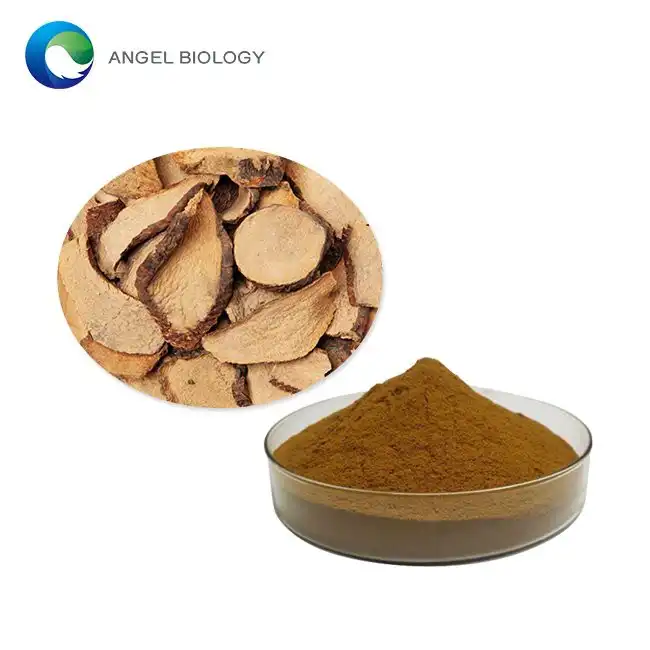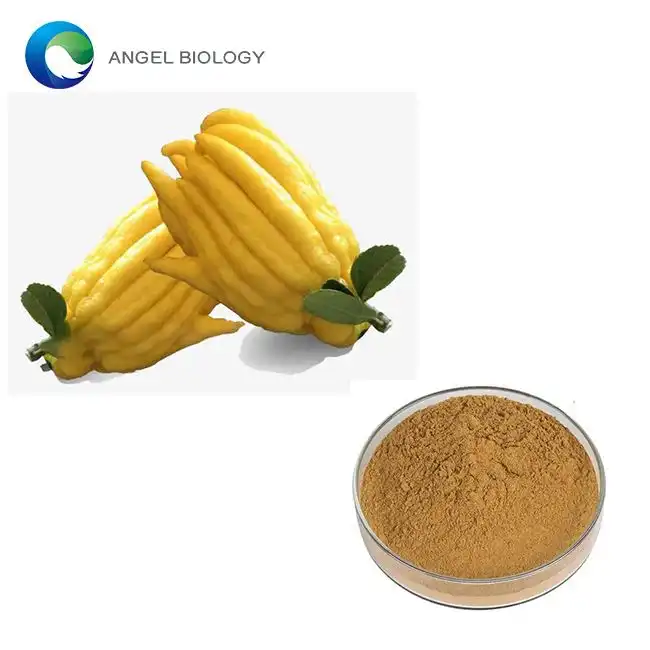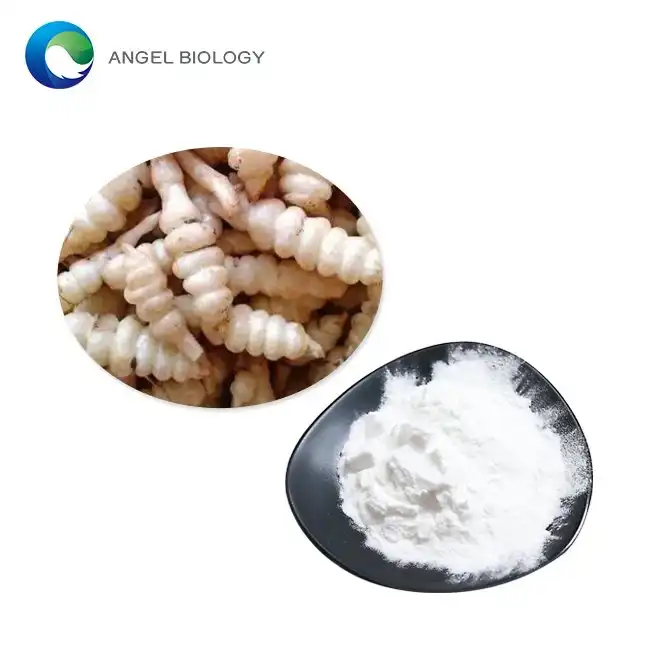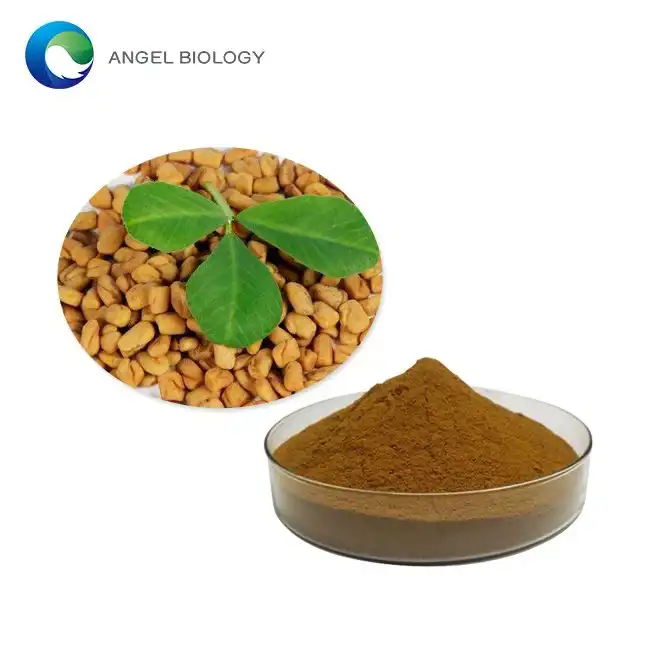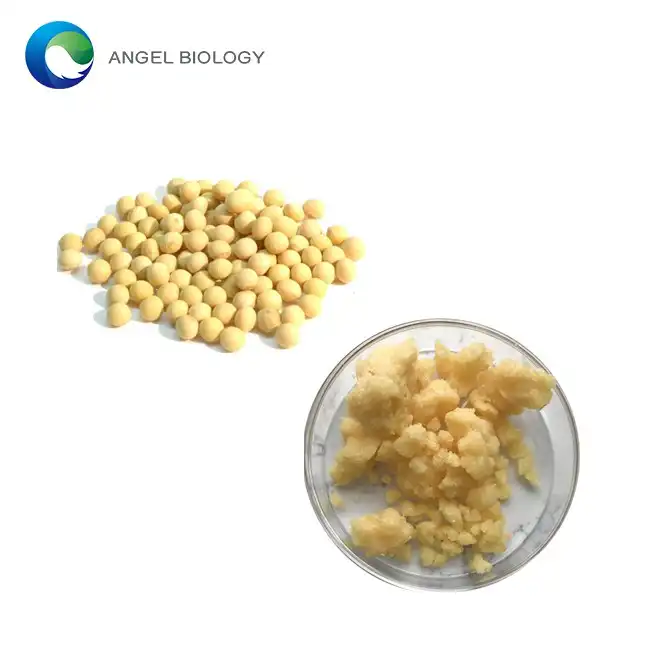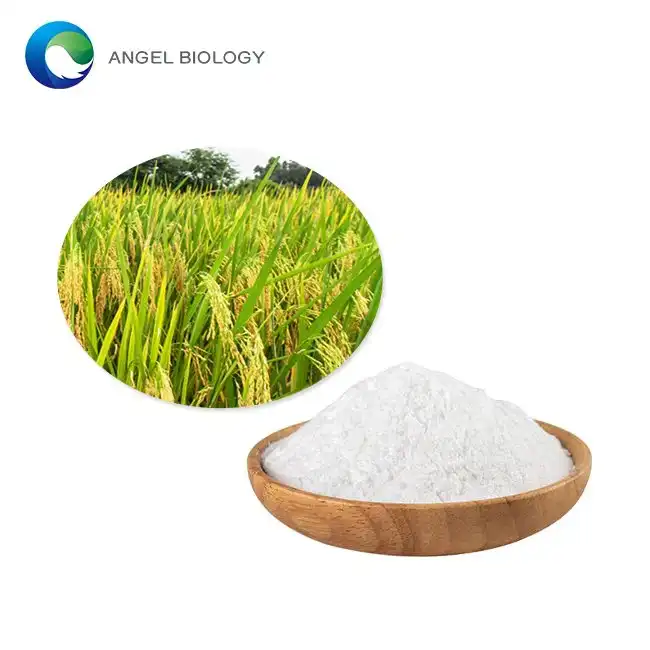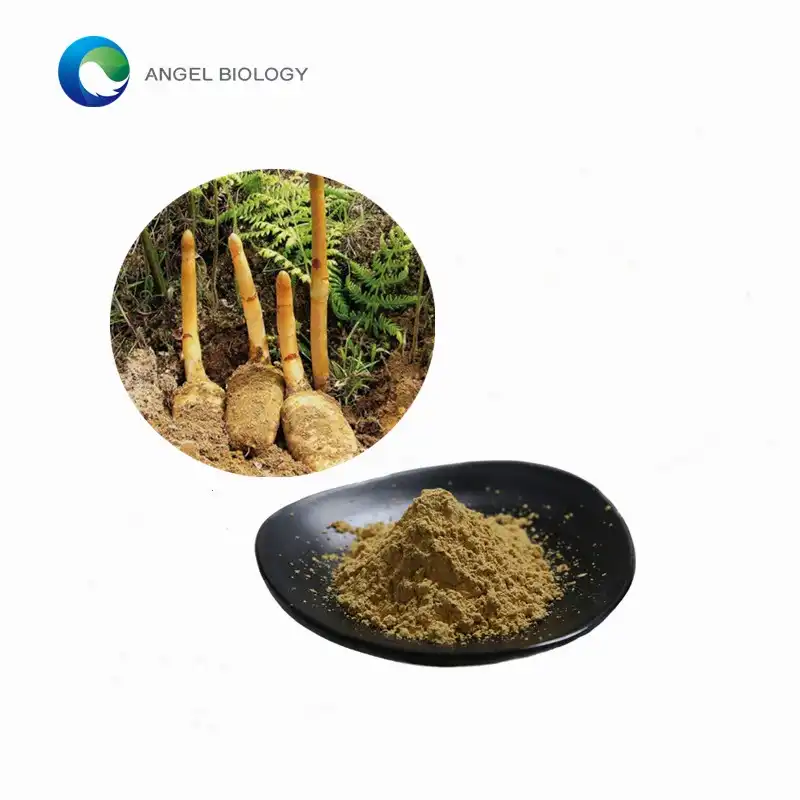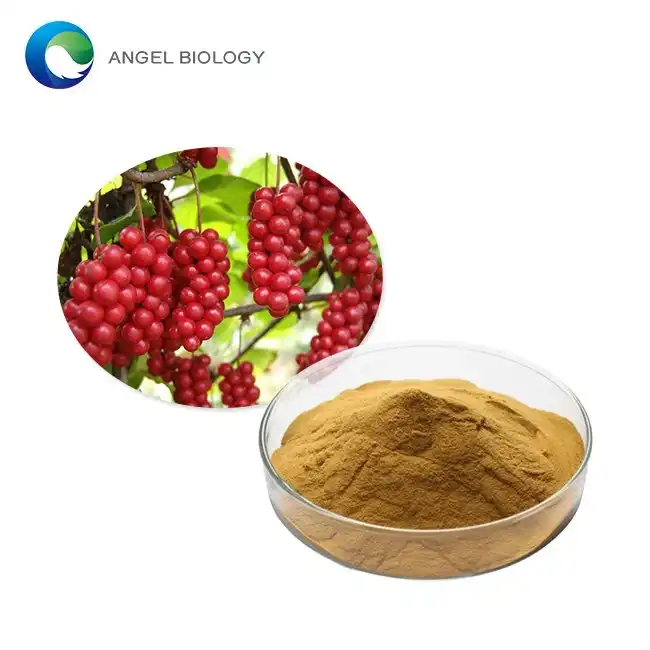Key Phytochemicals in Angelica Extract Powder
The potency of Angelica extract powder lies in its rich phytochemical profile. These natural compounds work synergistically to produce the herb's therapeutic effects. Let's explore some of the principal constituents:
Coumarins
Coumarins are a class of organic compounds found abundantly in Angelica. These substances are known for their antioxidant and anti-inflammatory properties. Some of the notable coumarins in Angelica include:
- Angelicin
- Bergapten
- Imperatorin
- Xanthotoxin
These compounds have shown promise in various areas of health, including cardiovascular support and potential anti-cancer properties.
Essential Oils
The aromatic profile of Angelica is attributed to its rich essential oil content. These volatile compounds contribute not only to the herb's distinctive scent but also to its medicinal properties. Key components of Angelica's essential oil include:
- α-pinene
- β-phellandrene
- Limonene
- Myrcene
These terpenes have demonstrated antimicrobial, anti-inflammatory, and analgesic properties in various studies.
Flavonoids
Flavonoids are a group of polyphenolic compounds widely recognized for their antioxidant properties. In Angelica extract powder, you'll find several flavonoids, including:
- Quercetin
- Kaempferol
- Rutin
These compounds play a crucial role in protecting cells from oxidative stress and may contribute to the herb's anti-inflammatory effects.
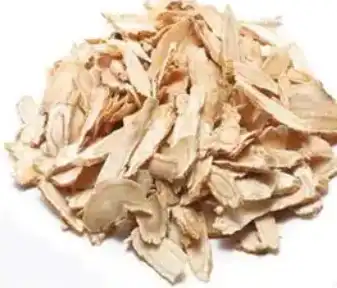
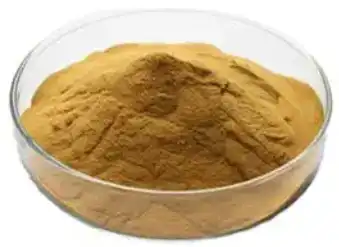
Angelica's Polysaccharides: What Do They Do?
Polysaccharides are complex carbohydrates that form a significant portion of Angelica's active composition. These molecules have garnered considerable attention in recent years due to their potential health benefits.
Immunomodulatory Effects
One of the most intriguing properties of Angelica's polysaccharides is their ability to modulate the immune system. Research suggests that these compounds can:
- Enhance the production of immune cells
- Stimulate the release of cytokines
- Improve overall immune function
This immunomodulatory effect may contribute to Angelica Extract Powder's traditional use in supporting overall health and wellness.
Antioxidant Properties
While not as potent as some other antioxidants in Angelica, the polysaccharides do exhibit some free radical scavenging activity. This property may contribute to the herb's overall protective effects against oxidative stress.
Potential Anti-diabetic Effects
Some studies have suggested that Angelica polysaccharides may have beneficial effects on glucose metabolism. These compounds have shown potential in:
- Improving insulin sensitivity
- Reducing blood glucose levels
- Protecting pancreatic β-cells
While more research is needed, these findings hint at the potential of Angelica polysaccharides in managing diabetes and metabolic disorders.
How Does Ferulic Acid Work in Angelica Extract?
Ferulic acid is another crucial component of Angelica extract powder. This phenolic compound is known for its potent antioxidant properties and contributes significantly to the herb's health benefits.
Antioxidant Powerhouse
Ferulic acid is a powerful antioxidant that can neutralize various types of free radicals. Its antioxidant activity is particularly noteworthy because it can:
- Protect against lipid peroxidation
- Scavenge reactive oxygen species
- Chelate metal ions that can promote oxidation
These properties make ferulic acid a valuable component in protecting cells from oxidative damage.
Skin Health Benefits
The antioxidant properties of ferulic acid extend to skin health. It has been shown to:
- Protect against UV-induced skin damage
- Reduce the appearance of fine lines and wrinkles
- Improve skin hydration and elasticity
These benefits have made ferulic acid a popular ingredient in many skincare products.
Neuroprotective Potential
Emerging research suggests that ferulic acid may have neuroprotective properties. It has shown promise in:
- Reducing oxidative stress in brain cells
- Improving cognitive function in animal studies
- Potentially slowing the progression of neurodegenerative diseases
While more research is needed, these findings highlight the potential of ferulic acid in supporting brain health.
Cardiovascular Support
Ferulic acid may also contribute to heart health. Studies have indicated that it can:
- Help lower blood pressure
- Reduce inflammation in blood vessels
- Improve lipid profiles
These effects underscore the potential role of ferulic acid in supporting cardiovascular health.
Synergistic Effects
It's important to note that while ferulic acid is a potent compound on its own, its effects are likely enhanced by the synergistic action of other components in Angelica extract powder. This synergy is part of what makes whole-herb extracts so valuable in holistic health approaches.
Bioavailability Considerations
The bioavailability of ferulic acid can vary depending on its form and how it's consumed. In Angelica extract, it's present in both free and bound forms. The bound form may be released slowly in the gut, potentially prolonging its beneficial effects.
Future Research Directions
As research into the components of Angelica extract powder continues, we're likely to uncover even more about how ferulic acid and other compounds contribute to its health benefits. Areas of ongoing investigation include:
- Optimal dosage and delivery methods
- Potential drug interactions
- Long-term effects of supplementation
These studies will help us better understand how to harness the full potential of this remarkable herb.
The Role of Other Phenolic Compounds
While ferulic acid is a standout compound, it's not the only phenolic acid in Angelica. Others, such as caffeic acid and chlorogenic acid, also contribute to the herb's antioxidant profile. These compounds work together to create a robust defense against oxidative stress.
Interaction with Gut Microbiota
Emerging research suggests that ferulic acid and other phenolic compounds in Angelica may interact with gut bacteria. This interaction could potentially:
- Support a healthy gut microbiome
- Enhance the absorption of beneficial compounds
- Contribute to overall digestive health
This area of study opens up exciting possibilities for understanding the full scope of Angelica's health benefits.
Potential Anti-cancer Properties
Some preliminary studies have suggested that ferulic acid may have anti-cancer properties. While much more research is needed, initial findings indicate it may:
- Inhibit the growth of certain cancer cells
- Enhance the effects of some chemotherapy drugs
- Protect healthy cells from damage during cancer treatment
These potential benefits underscore the importance of continued research into the components of Angelica extract powder.
In conclusion, the active composition of Angelica extract powder is a complex tapestry of bioactive compounds, each contributing to its overall therapeutic potential. From the immunomodulatory effects of its polysaccharides to the potent antioxidant properties of ferulic acid, Angelica offers a wealth of potential health benefits. As research continues, we're likely to uncover even more about this remarkable herb and its applications in promoting health and wellness.
Are you interested in incorporating high-quality Angelica extract powder into your product line or personal health regimen? At Angelbio, we're dedicated to providing premium, natural ingredients for the health and wellness industry. Our Angelica extract powder is carefully sourced and processed to ensure maximum potency and purity. Whether you're a manufacturer looking for top-tier ingredients or an individual seeking to enhance your health, we're here to help. Reach out to us at angel@angelbiology.com to learn more about our products and how we can support your wellness journey.
References
1. Zhang, L., et al. (2019). "Phytochemical composition and bioactive properties of Angelica archangelica root extracts." Journal of Ethnopharmacology, 246, 112225.
2. Wang, X., et al. (2020). "Angelica polysaccharides: Structure, function and application in medicine." International Journal of Biological Macromolecules, 164, 4199-4213.
3. Srinivasan, M., et al. (2007). "Ferulic Acid: Therapeutic Potential Through Its Antioxidant Property." Journal of Clinical Biochemistry and Nutrition, 40(2), 92-100.
4. Chen, C., et al. (2018). "Angelica sinensis polysaccharide: An review of its pharmacology, formulation and clinical application." Materials Science and Engineering: C, 86, 595-603.



